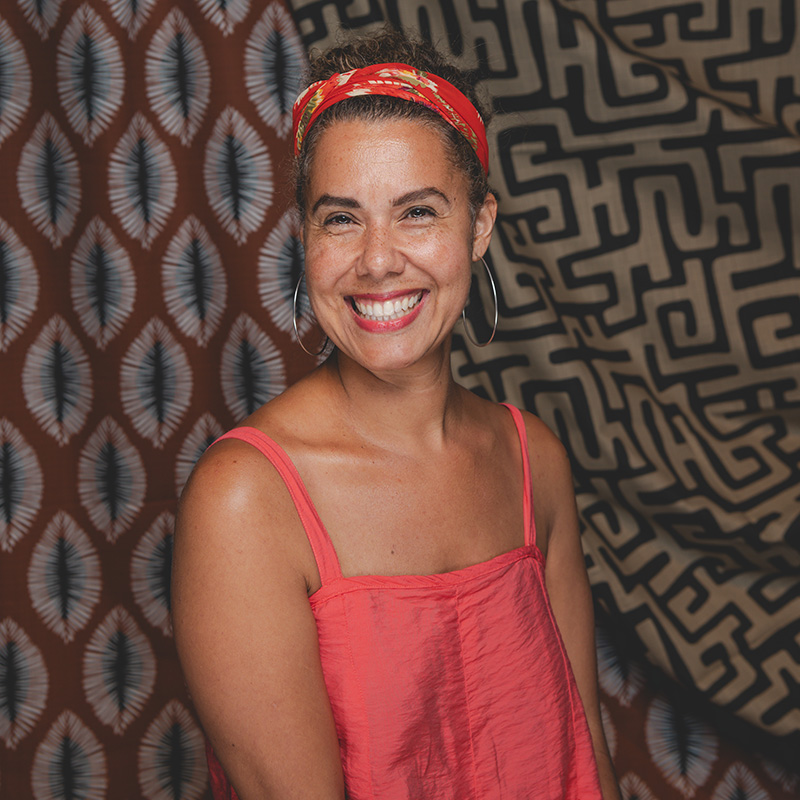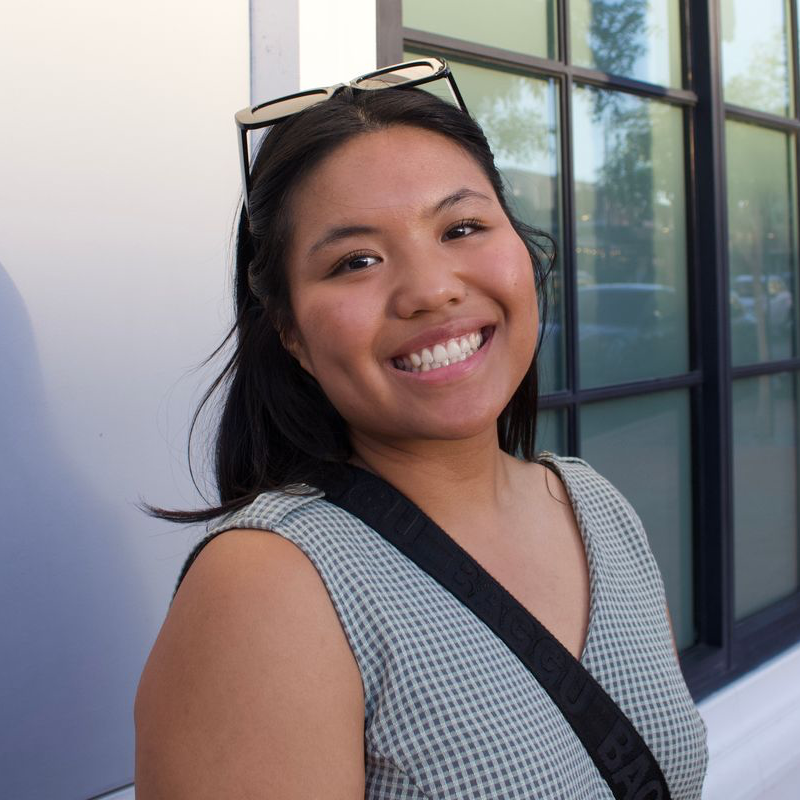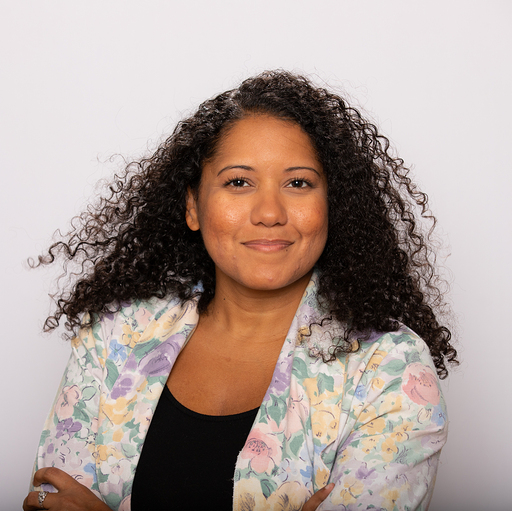
Wula Dawson
"That very false narrative of Black folks having mink coats and sitting on welfare rolls, I mean, it's so irrational, because there's not even enough money to buy one mink coat from years."
Wula Dawson
Ashby Combahee
Alright, well, my name is Ashbee Combahee. And I am here with Dartricia Rollins, and we are interviewing Wula Dawson for the Telling Our Own Stories: Black Women’s Leadership Legacies event. Today is September 23rd, 2023. And Georgia Dusk: a southern liberation oral history project is conducting this oral history at 7 Stages Theatre in Little Five Points neighborhood at Atlanta. You have been asked to participate in the storytelling project to uplift the stories of Black women and their lineage of radical leadership in part of the film screening of Storming Caesar’s Palace. Storming Caesar’s Palace uplifts the story of a band of ordinary Black mothers who launched one of the most extraordinary yet forgotten, feminists, anti poverty movements in US history, providing a blueprint today for an equitable future. This oral history collection is in partnership with The GRO Fund, filmmaker Hazel Gurland-Pooler, Red Owl Partners, Tender Foundation, Black Feminist Futures, the Center for Civic Innovation Atlanta, Represent Georgia, and WRFG Atlanta. So with all that being said, Wula can you please introduce yourself by saying your full name, your pronouns and your age?
Wula Dawson
My name is Wula Dawson. My pronouns are she and her. And as of yesterday, I’m 47.
Ashby Combahee
Happy birthday.
Wula Dawson
Thank you.
Ashby Combahee
What season are we in? I should know.
Wula Dawson
Libra, I brought it in for you. I know I brought it in. It’s the equinox.
Ashby Combahee
Yes, yes, I love it. So one of the grounding questions that we like to ask is, who do you dedicate this oral history to?
Wula Dawson
Well, can I do two people? Yeah, I was, I’ve been thinking about Sharon Gary Smith, who is a Black woman, longtime activist, and second generation civil rights leader in my hometown of Portland, Oregon. And then I’ve been thinking about my mom a lot lately. Who is in an interesting time of her life and 78. But also, we joined feminist movement simultaneously when I was a teenager. And she joined a board for a domestic violence shelter. Yeah, yeah.
Ashby Combahee
Yeah, I mean, that leads pretty well into the next question I ask, which is around your roots, who shaped you? And what were the values that they instilled in you?
Wula Dawson
Yeah, I mean, I was really initially shaped by white domestic violence, lesbians fighting to keep women alive and women and children alive, escaping domestic violence in Portland, Oregon. Um, before that, on my father’s side of the family, I come from white philanthropists. And my grandmother actually did reproductive justice crazily in Hawaii and worked to like make sure infants and maybe reproductive reproductive health, but work to make sure that infants got nutrition. And did the, started the chapter, Hawaii chapter of the March of Dimes in the 70s before I was born. Yeah, it’s really amazing that it’s come full circle. And then of course, right, the Black woman who right shaped my mom and the legacy of Black women of raising other people’s children and being a member, active members of church and holding it down. Obviously, shaped me. Similarly, yeah.
Ashby Combahee
I mean, this work then is in your blood.
Wula Dawson
Yeah.
Ashby Combahee
Yes. Can you talk a little bit more about your work?
Wula Dawson
Um, yeah. I mean, I, I. So I joined domestic violence, the domestic violence movement really young, and I don’t think teenagers should work at domestic violence shelters. But I did. But I also had the maturity and I really felt late. You know, by the time I was volunteering, I felt like I had already heard the call. And I’ve always done communications work. I’ve worked on like a woman of color domestic violence statewide newsletter. It’s interesting. I remember when Trump came into office, he dismantled the Violence Against Women Act. And in the 90s, when I was starting my activism, the Violence Against Women Act was this amazing flooding of funding that went across the nation, and allowed women of color and other women to organize around domestic violence. So as a teen, I helped assemble women of color across the state of Oregon to talk about domestic violence and, like women working on Warm Springs reservations, in Eastern Oregon and farmworker women all over the state, it was really amazing to interface with women of color coalition building at the outset of my work for social justice. Yeah.
Ashby Combahee
Yeah, that’s incredible. And so we are also thinking about I mean, So much of what you’re talking about what a part of the film was, right? Yeah, providing material support for people in the most dire situations, but also piece of that is the guaranteed income. Cash support. Right? And so have you or your family ever benefited from the welfare system?
Wula Dawson
Yeah, I mean, I’m literally getting unemployment benefits right now.
Ashby Combahee
And, so what does that what does that mean to you?
Wula Dawson
Well, it’s interesting, right? So I’ve been in communications and I remember we were brainstorming about Georgia’s proactive reproductive rights, legislation and, and in a brainstorm, we came up with the idea of everybody wants their neighbors to have what they need. And I think it’s such a simple concept. And it goes directly against this messaging of these people. That very false narrative of Black folks having mink coats and sitting on welfare rolls, right. I mean, it’s so irrational, because there’s not even enough money to buy one mink coat from years, right. I mean, and I, you know, I can get really analytical and heady about this, but you know, just, yeah, just the white supremacist value of labor, and that you aren’t worthy of resources unless you jump through hoops and, and like, like, the perverse logic around these systems, and, as opposed to, like, it’s literally more efficient for you to just cut fucking checks, literally. I mean, I want people in who work in social services to have jobs, so like, cut them checks to, but like, don’t make ridiculous systems, so that you can perform white supremacy and justify, like me having the resources I need to rest as I pivot in my career, and I, I have access to so much right. I’m not raising children, I come from a family with some inherited wealth, like I’m good, right? So thinking about folks who, who all of us, I think, are pushed up against our self worth, when we interface with a system like that, that tells us that we’re not worthy, unless we jump through these hoops, so. But I also think it’s spiritual, right? Like, I mean, unpopular opinion, but I actually want like the horrible governor in the story. I want everyone to have that spiritual sense of abundance, and not to like wrap themselves around like racist white supremacist hatred of Black mothers who raised your families, children and build this country like it’s really sick. So I want us all to feel that abundance.
Ashby Combahee
Absolutely. Those are the set questions that we have that you answered all beautifully. And I’m wondering since we’re recording, is there anything else that we didn’t touch on that you want to discuss?
Wula Dawson
I think this is so great. I’m glad that you guys are collecting stories. Yeah, I don’t have an agenda. I already said a lot.
Ashby Combahee
Thank you
Wula Dawson
Yeah, thank you.
EXPLORE MORE STORIES
Maicyn Udani

Hillary Holley

Anthony Paculan

